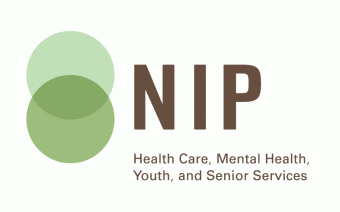- Education Topics
- Achievement Gap
- Alternative Education
- American Education Awards
- Assessment & Evaluation
- Education during COVID-19
- Education Economics
- Education Environment
- Education in the United States during COVID-19
- Education Issues
- Education Policy
- Education Psychology
- Education Scandals and Controversies
- Education Reform
- Education Theory
- Education Worldwide
- Educational Leadership
- Educational Philosophy
- Educational Research
- Educational Technology
- Federal Education Legislation
- Higher Education Worldwide
- Homeless Education
- Homeschooling in the United States
- Migrant Education
- Neglected/Deliquent Students
- Pedagogy
- Sociology of Education
- Special Needs
- National Directories
- After School Programs
- Alternative Schools
- The Arts
- At-Risk Students
- Camps
- Camp Services
- Colleges & Universities
- Counties
- Driving Schools
- Educational Businesses
- Financial Aid
- Higher Education
- International Programs
- Jewish Community Centers
- K-12 Schools
- Language Studies
- Libraries
- Organizations
- Preschools
- Professional Development
- Prom Services
- School Assemblies
- School Districts
- School Field Trips
- School Health
- School Supplies
- School Travel
- School Vendors
- Schools Worldwide
- Special Education
- Special Needs
- Study Abroad
- Teaching Abroad
- Volunteer Programs
- Youth Sports
- For Schools
- Academic Standards
- Assembly Programs
- Blue Ribbon Schools Program
- Educational Accreditation
- Educational Television Channels
- Education in the United States
- History of Education in the United States
- Reading Education in the U.S.
- School Grades
- School Meal Programs
- School Types
- School Uniforms
- Special Education in the United States
- Systems of Formal Education
- U.S. Education Legislation
- For Teachers
- Academic Dishonesty
- Childcare State Licensing Requirements
- Classroom Management
- Education Subjects
- Educational Practices
- Interdisciplinary Teaching
- Job and Interview Tips
- Lesson Plans | Grades
- Professional Development
- State Curriculum Standards
- Substitute Teaching
- Teacher Salary
- Teacher Training Programs
- Teaching Methods
- Training and Certification
- For Students
- Academic Competitions
- Admissions Testing
- At-Risk Students
- Career Planning
- College Admissions
- Drivers License
- Educational Programs
- Educational Television
- High School Dropouts
- Higher Education
- School Health
- Senior Proms
- Sex Education
- Standardized Testing
- Student Financial Aid
- Student Television Stations
- Summer Learning Loss
Home | National Directories | Volunteer Program | Neighborhood Involvement Program (N.I.P.) Youth Mentoring Program |
Neighborhood Involvement Program (N.I.P.) Youth Mentoring Program

Basic Information
Address: 3333 N. 4th St.
Minneapolis, MN 55412
Phone Number: 612-276-1523
Fax Number: 612-276-1531
Director: Lacey Curtis
Action Shots
* There are currently no photos associated with this listing.
Additional Information
Causes Served: Youth Mentoring
Clearances Required: Yes
Background Check: Yes
Population Served: N. Minneapolis youth ages 10-14
Ages for Volunteer: 18+
Hours of Service: 1-2 hrs/week
Minimum Hours Required: 1
Days of Service: Thursdays
Mission Statement:
The mission of N.I.P.'s youth mentoring program is to provide caring mentors to children in N. Minneapolis who need a positive role model in their lives. N.I.P. believes that through mentoring, children will be able to better realize their potential and will be better equipped to help themselves in the future.
Program History:
N.I.P.'s youth program is new this year and will begin in the fall 2011 school year.
Additional Information:
Mentoring Program Overview: Together Obtaining Guidance Encouraged Through Healthy Empowering Relationships (T.O.G.E.T.H.E.R.) is a non-profit youth mentoring program offered by the Neighborhood Involvement Program (NIP). Youth mentoring is important because it pairs an adult volunteer with a young person who needs or wants a caring, responsible adult in their lives. T.O.G.E.T.H.E.R. serves youth 5th-8th grade. Qualified children for the program live in North Minneapolis. The program aims to help children reach educational and personal goals by matching them with a mentor who will meet with them once a week for one hour. By matching a child with a qualified mentor, they will be able to see themselves grow from a child into a young adult.
Mentor Description: Mentors come from all different backgrounds. The one thing they have in common is a desire to be a positive influence in a child’s life. Mentors need to commit to meeting one-on-one with a child once a week for at least one school year. The mentor is someone who will help a child with their school work; as well as teach them skills they can use within the community. Examples include helping with homework, reading a book together, playing chess, filling out job applications together, cooking a meal, discussing professional goals, etc.
Mentor Screening: The screening process includes the following: volunteer application form, interview, reference check, and federal & state criminal background checks
Youth Referrals: Youth referrals come from a variety of places: parent/guardian, self, social worker, teacher, or other professional.

